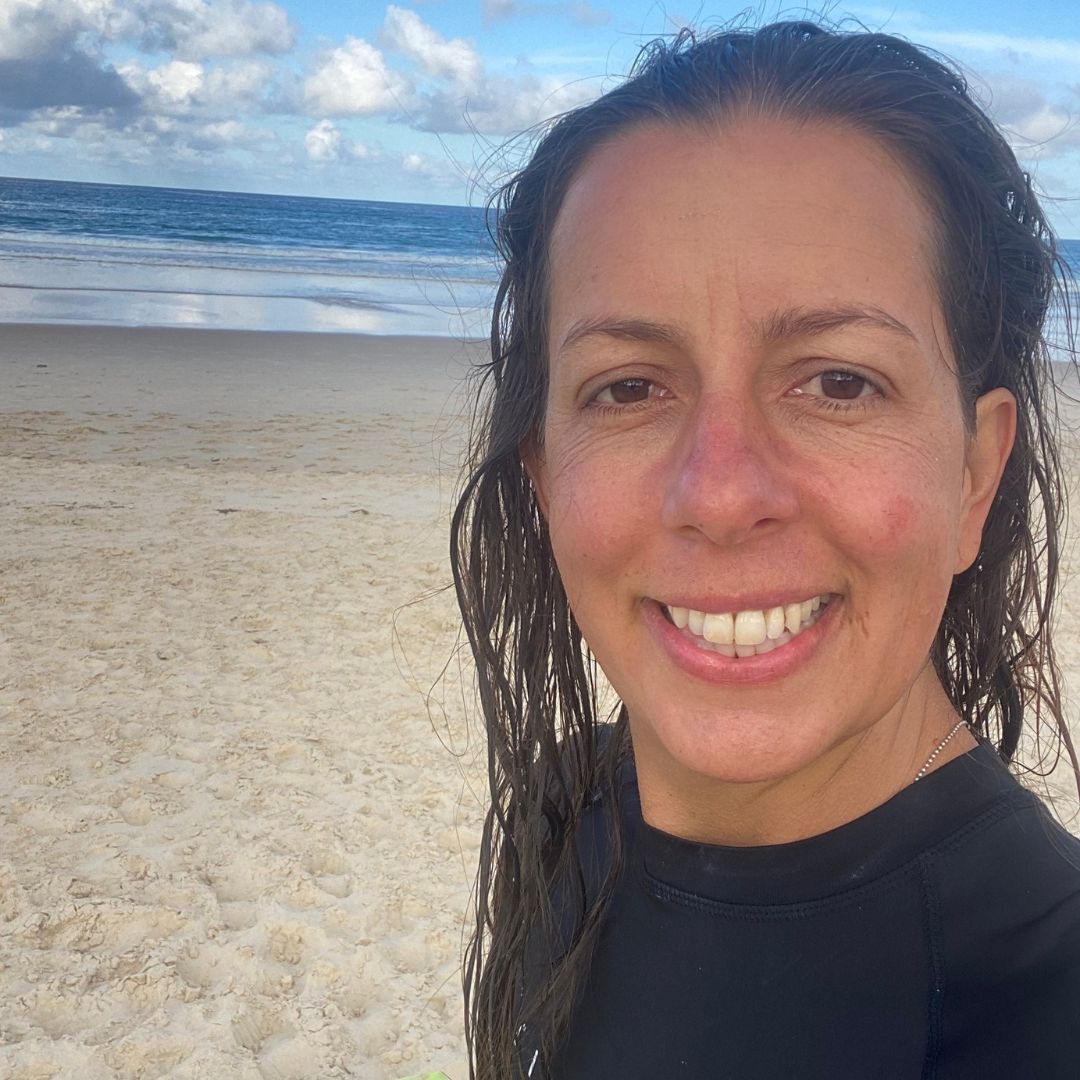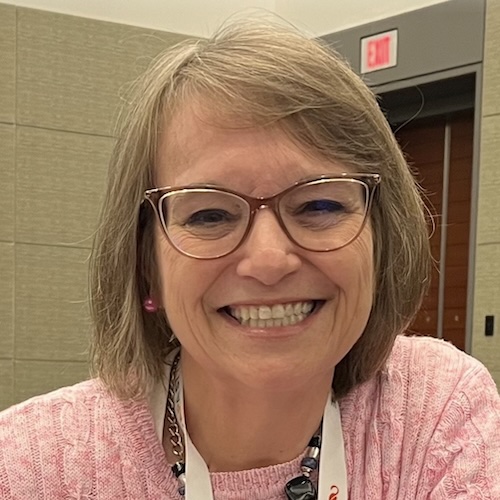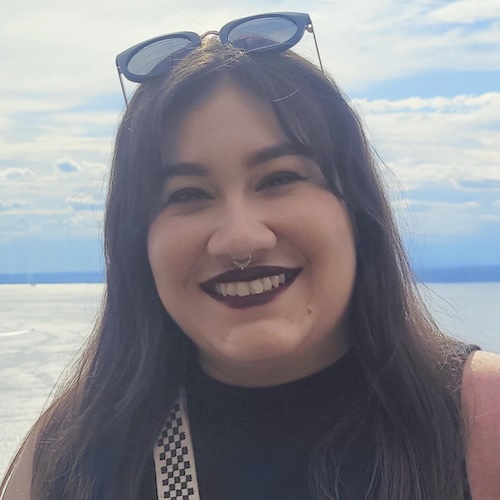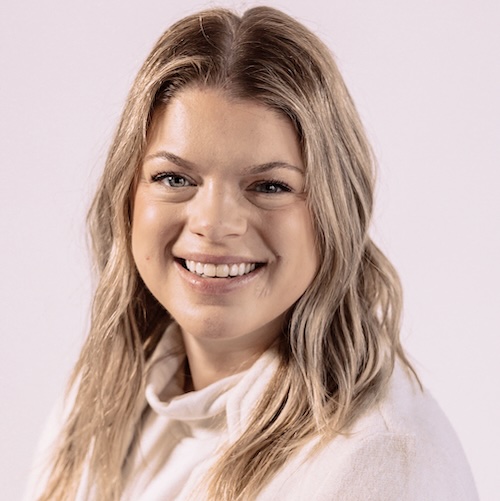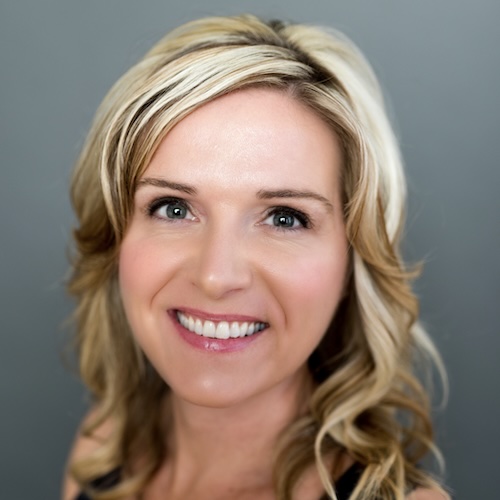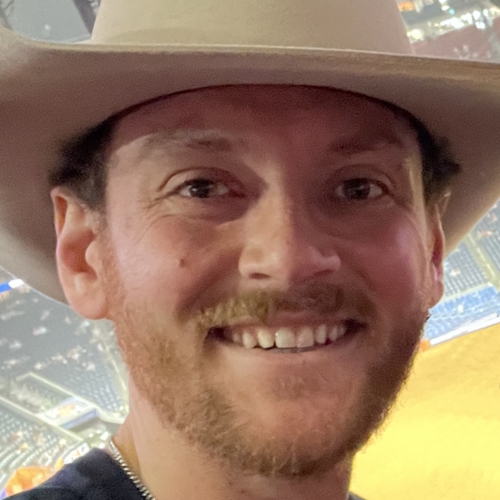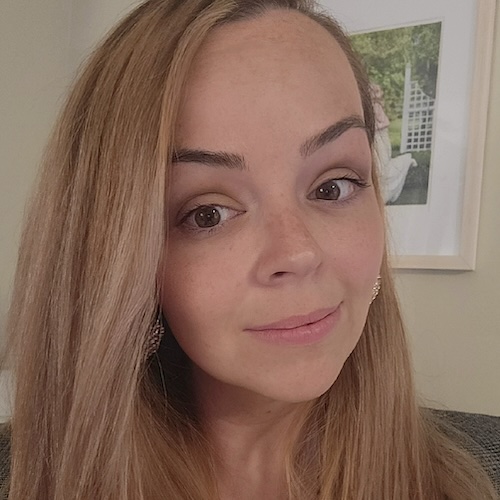Angelica’s Stage 3 Bowel Cancer Story
As a working wife and mother of 2 young children, Angelica chalked up her constant exhaustion to her busy lifestyle and anemia.
New symptoms such as irregular bowel movements arose, which led her to make a doctor’s appointment. But a sudden loss of appetite prompted Angelica to visit the ER where doctors discovered she had stage 3 bowel cancer.
After recently learning she was all-clear after a 5-year cancer journey, Angelica shares her story with us, how a plant-based diet and exercise routine helped her overcome chemo, and how cancer led to her reconnecting with herself.
In addition to Angelica’s narrative, The Patient Story offers a diverse collection of colorectal cancer stories. These empowering stories provide real-life experiences valuable insights and perspectives on symptoms, diagnosis, and treatment options for cancer.
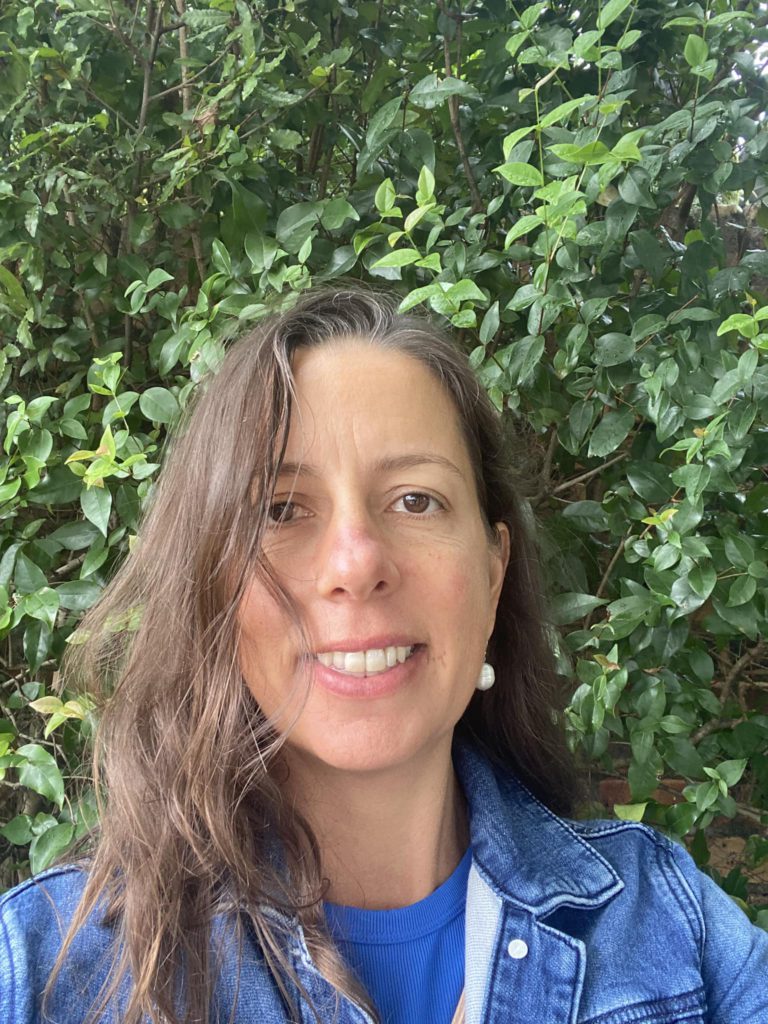
- Name: Angelica A.
- Diagnosis (DX):
- Staging: 3
- Symptoms:
- Fatigue
- Anemia
- Irregular bowel movements
- Loss of appetite
- Heavy periods
- Age at DX: 38
- Treatment:
- Surgery
- Laparoscopy
- Chemotherapy
- FOLFOX
- Partial hysterectomy
- Surgery
I went from doing nothing for me to doing everything for me, and I was having the best time of my life
Angelica A.
This interview has been edited for clarity. This is not medical advice. Please consult with your healthcare provider for treatment decisions.
- First Symptoms & Diagnosis
- Tell us about yourself
- What were your first symptoms?
- What did you think was causing your symptoms?
- What did your doctors say about your symptoms?
- Describe the fatigue you experienced
- How did you handle the fatigue?
- What led you to the emergency room?
- How did you advocate for yourself?
- What did the CT scan show?
- How did you get the CT scan?
- Surgery
- Chemotherapy
- Lifestyle Changes
- Reflections
First Symptoms & Diagnosis
Tell us about yourself
I am Angelica Allen. I’m a stage 3 bowel cancer survivor and thriver. Yesterday I got my all-clear after 5 years, which is incredible! I’m really happy, pleased, and blessed.
I love yoga, walking in nature, connecting to nature, going to the beach with my kids, surfing, being outside, spending time with my family, and my dog.
What were your first symptoms?
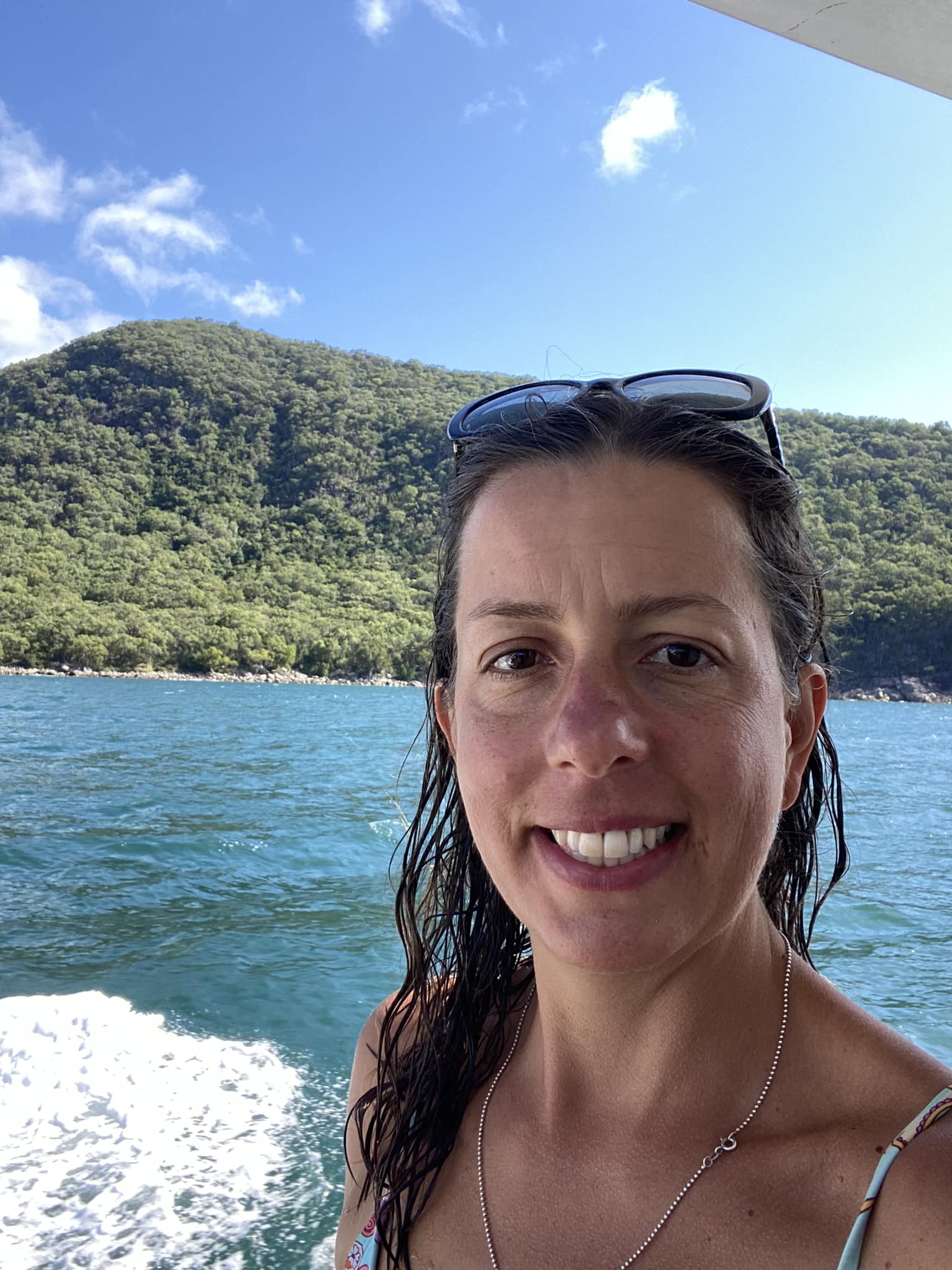
Another symptom that I had was I was really bloated. It’s hard, as a woman, to connect that to cancer because the doctors say, “Well your periods are really heavy. This is why you’re bloated.”
I had been iron deficient. I was exhausted. I was on iron tablets and I was told to eat red meat 3 times a week. The exhaustion never went away. For 7 or 8 months, I was on this iron tablet and nothing changed. Then I started feeling some bowel movements change.
I have always been a regular person. That meant that sometimes I would have a little bit of soft poo, sometimes a lot. I didn’t know why that was happening. Sometimes I would go to the toilet, sometimes I wouldn’t. And for somebody who was regular, that was odd.
When I went to my doctor, we were trying to fix my iron deficiency. And my periods were really heavy. Another symptom that I had was I was really bloated. It’s hard, as a woman, to connect that to cancer because the doctors say, “Well your periods are really heavy. This is why you’re bloated.”
I was so bloated that when I was working in corporate, I went to meetings and they would congratulate me like I was pregnant. I’d say, “No, I’m not.” That bad. I wasn’t overweight anywhere else. It was in the belly area, that bloatedness.
What did you think was causing your symptoms?
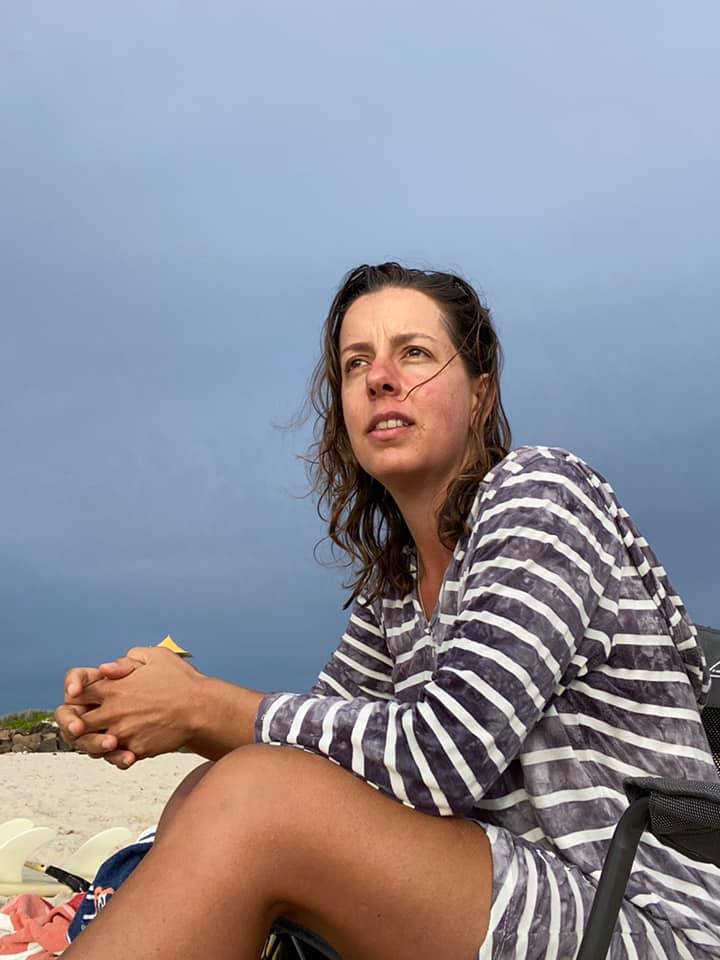
I thought it was the iron tablets that were causing the bowel movements. I stopped the iron tablets but the anemia came back straight away and that’s when the doctor said, “We need to check you to see if we can stop your periods from being so heavy, and we need to send you to the gastroenterologist to see if everything is okay with your bowel.”
Whilst I was waiting for that, the bowel movement changes increasingly got worse. Then I had my first bleeding which was probably 3 or 4 months before my diagnosis. I have spoken to so many people that have bleeding. It doesn’t necessarily need to be bowel cancer, it could be so many other things. And if you go to the doctors, that doesn’t mean that they’re going to do anything about it. It’s like [they say], “Go home and wait for the colonoscopy. Let’s see what happens.”
The crazy thing about cancer is people ask, “Were you in pain?” No, I wasn’t. I had no pain anywhere. Even with the bloatedness, I didn’t have any pain. It was discomfort. Nobody likes being bloated, but it wasn’t pain. Apart from the exhaustion, I can’t say I had anything else.
At an emotional and mental level, I had this inner voice telling me something is terribly wrong. But I did not want to hear it. I never Googled symptoms of cancer. I thought I am not going to be that person. This is not going to be me. I am strong. I’ve always been strong. I’ve never been sick. I’m invincible. I’m only 38 years old. Nothing like that’s going to happen to me.
I diagnosed myself. [I thought] maybe I just have IBS because IBS has the same kind of symptoms. I looked on Google but I never allowed myself to look on Google for cancer. Everything that I looked at, I thought, “I’ve got IBS. That’s it.”
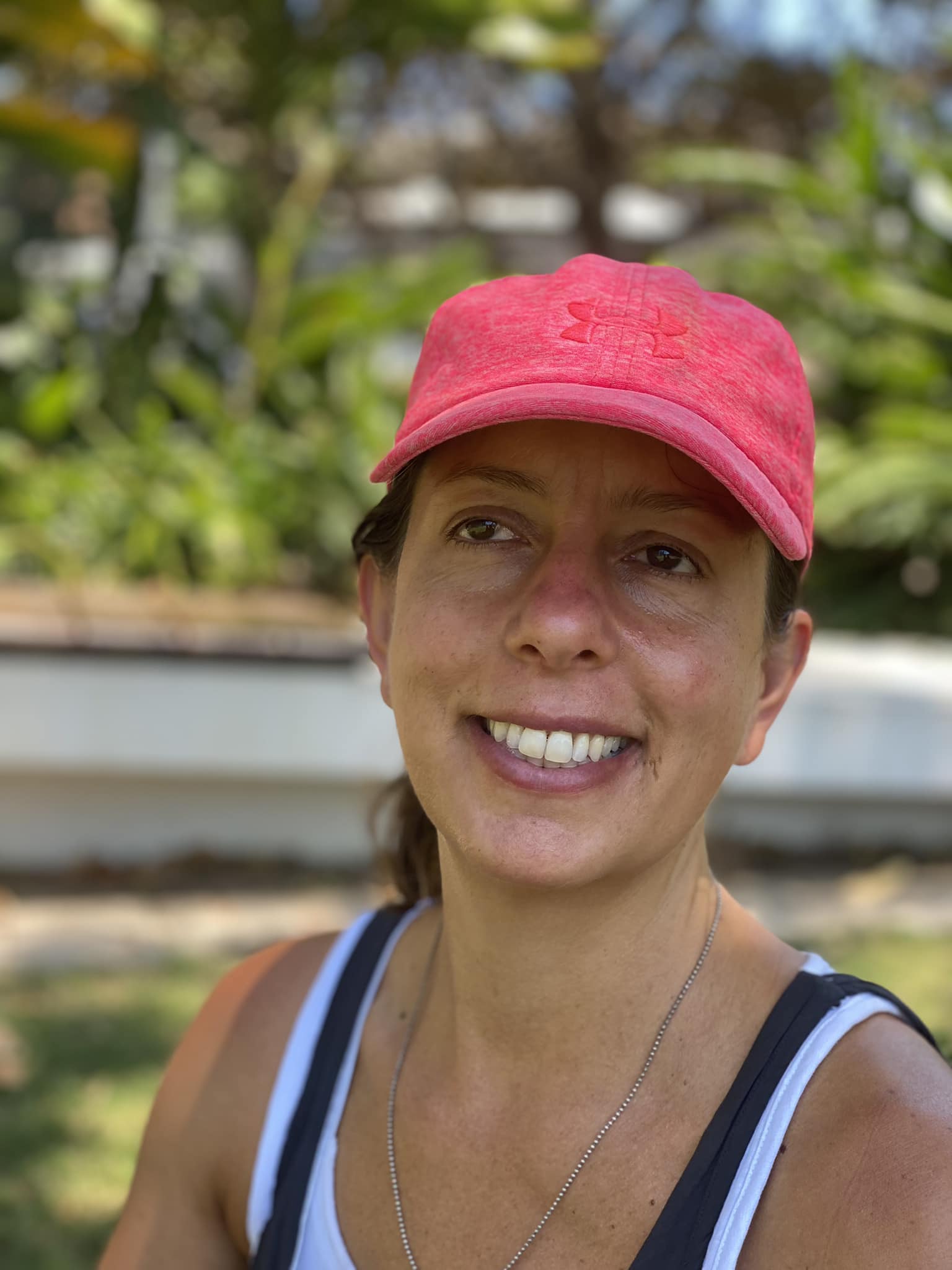
At an emotional and mental level, I had this inner voice telling me something is terribly wrong. But I did not want to hear it.
What did your doctors say about your symptoms?
I did have bleeding. It wasn’t every day and it was 3 months before my diagnosis. I was already waiting for the colonoscopy. That was when my doctor said, “Now that you have this bleeding, let’s refer you to the gastroenterologist.” It was the December and January holidays here. When I came back from the holidays, I said, “Now the movements in the bowel are all over the place.” She said, “Okay, let’s just get on with this.”
Describe the fatigue you experienced
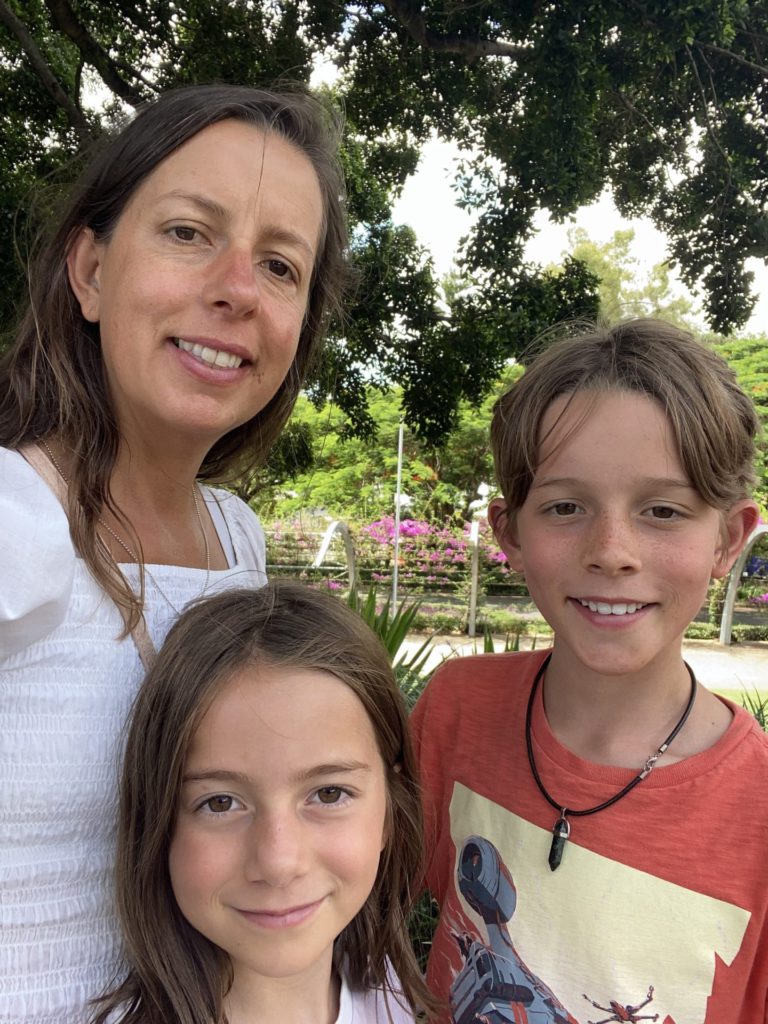
The exhaustion that I felt, I don’t even know how I went to work every day. How I functioned. I know a lot of people might be listening to this, maybe because they feel they have symptoms like exhaustion.
We are very concerned and very ashamed to go to the doctor and say, “I’m exhausted.” Because we think, who is not? Everybody’s exhausted, right? I was a mom working full-time with 2 young kids. Who’s going to go to the doctor and say, “I’m exhausted”?
On a Saturday, I would watch a movie with my kids in the afternoon. I would pass out on the sofa, I would go to another world, and I would get up and think where am I? That sort of exhaustion. And I kept pushing through. So many people that I have spoken to with cancer, the exhaustion is always there and people keep pushing through.
How did you handle the fatigue?
I was going to work every day, I never had a sick day, I was still pushing through all of it. But at home, I was a grumpy mother and a grumpy wife. I was very stressed because my body was in survival mode. I used to cycle to work for 8 kilometers. Not every day and I wasn’t doing exercise all the time, but sometimes I would feel like I’m breathless. And I’d say, “Why am I feeling breathless? I’m so young.”
The signs that our bodies give us are so subtle that it’s easy to ignore. It’s so easy to think, that’s nothing. I think we’re very good at pushing through despite the exhaustion, the symptoms, and all of that because our bodies are so resilient. If anybody has gone through anything like chemo, they know what that is like. For anybody to survive that is incredible.
I think that it’s really acknowledging, this is not right. I would wake up tired and say, “Oh my God, here we go again. How am I going to survive another day?”
The signs that our bodies give us are so subtle that it’s easy to ignore. It’s so easy to think, that’s nothing. I think we’re very good at pushing through despite the exhaustion, the symptoms, and all of that because our bodies are so resilient.
What led you to the emergency room?
I did not have the colonoscopy. I woke up one day while we were still waiting for the colonoscopy and I didn’t feel like eating. I was so exhausted. It was Easter and I thought, I’m tired because yesterday I was preparing for my daughter’s party. Tomorrow is going to be a better day.
When I woke up, I was still exhausted to the point that I did not feel like eating, which is really rare for me because I’m always hungry and I always eat a lot. I could not face eating. I braved the party, and then I said to my husband, “You need to drop me at the emergency.” I had this moment of God speaking to me and saying, “This is it. You need to go to emergency.”
I went to the emergency, they saw my paperwork, and there was nothing wrong with my blood. No tumor markers, and no elevated white cells. They look at me, I’m 38 years old and I look like this with no pre-condition, no family history of cancer. My grandmother had stomach cancer, but that’s it.
They said, “What are you doing here? There is nothing wrong with you. I know you’re waiting for the colonoscopy. You just have to wait.” I said, “I just don’t feel hungry.” They were doing their jobs. I understand they can’t put everybody through the CT machines. CT is radiation, there is a cost involved. There are so many dynamics around this. I really think that doctors are doing the best they can and they need to assess the situation as a whole.
How did you advocate for yourself?
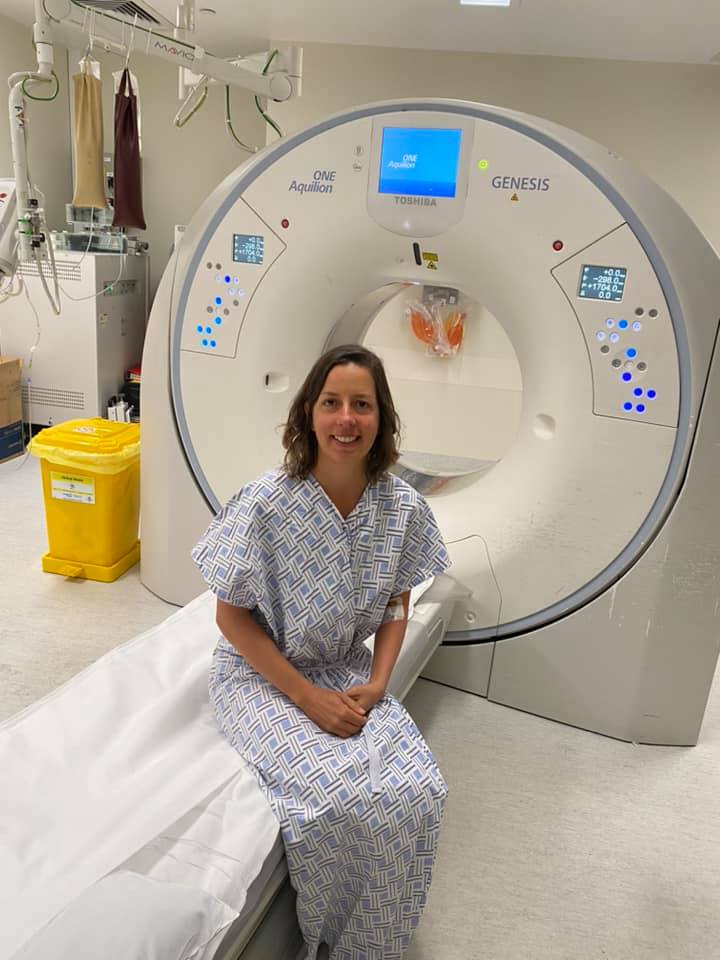
When he put me through the CT scan, he said, “Oh my God. No wonder you’re so bloated. I can’t believe you’re still standing.”
They look at me and think, “I know that you might be waiting for a colonoscopy and to see the gynecologist, but right now, there is nothing wrong with your blood. There’s nothing wrong with you.” But I kept saying to them, “I just really don’t feel like eating. This is not normal and I can’t go on like this. Something is not right.”
They need to understand if the person doesn’t just have anxiety. The doctor was open to me and said, “I’ve got to make a real assessment here because I can’t put everybody through the CT scan.” When he put me through the CT scan, he said, “Oh my God. No wonder you’re so bloated. I can’t believe you’re still standing.”
»MORE: How to be a self-advocate as a patient
What did the CT scan show?
The scan was showing that, on my right side, my bowel was packed with poo. And closer to the rectum, the bowel had gone inside itself. At that point, they said, “We’re not jumping to any conclusion that this is anything sinister. Because the bowel is almost moving, that could have happened. It could be a polyp.” There were no other pieces in the puzzle. The bloodwork was still showing I was a healthy person.
They said, “We need to get rid of this. You’re constipated. There is an issue there, but we need to see what it is going to be.” Then they asked, “Do you want to go home?” I said, “No, I’m not going home. I still feel sick.”
How did you get the CT scan?
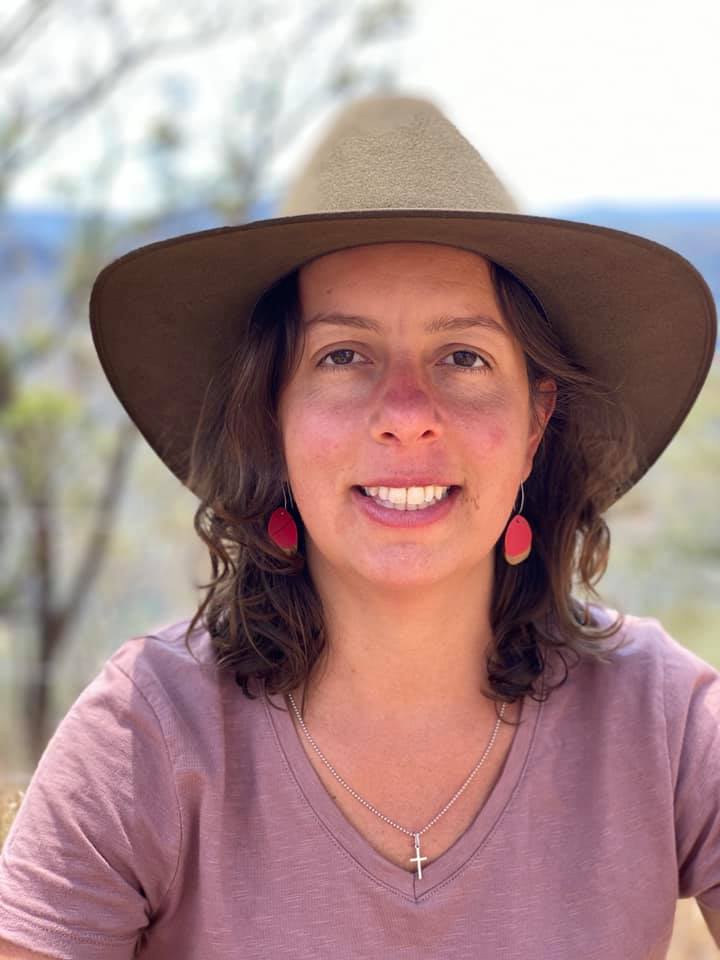
When we started talking, he realized that I wasn’t just anxious. I was mentally sound. I understood that I was waiting to have a colonoscopy. But at the same time, he understood that it wasn’t normal for me not to feel hungry. By that time, I hadn’t eaten anything from the night before.
I kept feeling queasy like I didn’t want to eat. I didn’t feel well. They gave me medication for nausea to see if that could help and it wasn’t helping. By then, I was on a drip and they said, “Let’s see what happens. We might get you to an urgent colonoscopy tomorrow.” I stayed there for one night. The next day [they asked], “How are you feeling?” I said, “The same.” Then they said, “This is more serious than we think.”
Surgery
What was your doctor’s next course of action?
They couldn’t really go in and get rid of this poo, because closer to the rectum, my bowel had gone inside itself. One of the gastroenterologists suggested, “I can give you something to loosen your poo.” If she had done that, I would have died because it would have just exploded with the pressure because that was where the cancer was. I was blessed, God was looking out for me.
A senior consultant looked at my paperwork from home, and he said, “It is cancer, stage 3, and I think I can come in tomorrow and do a laparoscopy surgery instead of opening her up in half.” Which, they were already entertaining the idea of. I could see that the surgeons were scared. I could see in their faces they thought, “This is not going to be good. You have all this poo backed up there, and if that goes everywhere, you can just die.”
One of the gastroenterologists suggested, “I can give you something to loosen your poo.” If she had done that, I would have died because it would have just exploded with the pressure because that was where the cancer was.
Which doctor oversaw your surgery?
He was a senior consultant, the boss of everybody. He came in and did an emergency surgery. I didn’t even see him. When he came out at night to tell me about the surgery, you could see he was at a totally different level than everybody else that I had seen. A completely different level of competency. He said, “The operation went really well.”
How did your husband react to your emergency surgery?
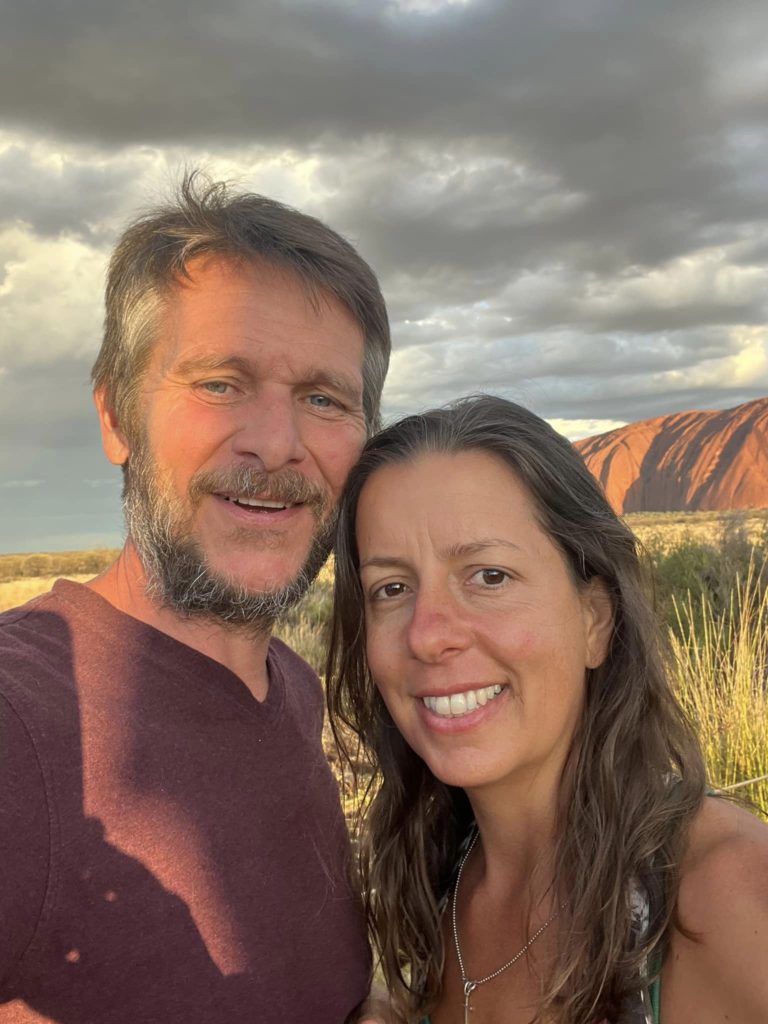
It was really scary because when I went in, my poor husband had to say goodbye, not knowing if he was going to see me on the other side. When it’s emergency surgery, it’s always really dangerous because you have all this poo there.
They said, “We’re going to try to do a laparoscopy, but if we can’t, we’re going to have to open you up and you might end up with an ileostomy bag. We are going to try, but it’s not guaranteed, and it is a very complicated surgery.” My husband asked, “Should I wait around?” They said, “Sorry, mate. You just have to go home. It’s going to be a long one.” Like hours on end.
»MORE: 3 Things To Remember If Your Spouse Is Diagnosed With Cancer
How did your surgery go?
I hadn’t eaten for 4 days by then so I was incredibly weak. In the limbo of, if we need you to do surgery, you can’t eat.
When [the surgeon] came out, he said to me, “The surgery went really well. I had a very good look around all your organs and your liver looks good. Everything looks well. But has anybody told you what we found?” I said, no and he said, “We definitely found a tumor.” The word cancer is such a charged word. Because he said tumor, it was a little lighter before you move on to the word cancer. I asked him, “Is there any chance it is benign?” And he said, “I’m sorry, it’s not. It’s stage 3 and you’re going to need 6 months of chemotherapy.”
How soon after your CT scan did you have surgery?
Four days. That poo wasn’t coming out. The tumor was right there at the end of the passage so there was nothing they could do. And with me feeling unwell and queasy, they said we just need to do something about this.
Chemotherapy
How did you react to your cancer diagnosis?
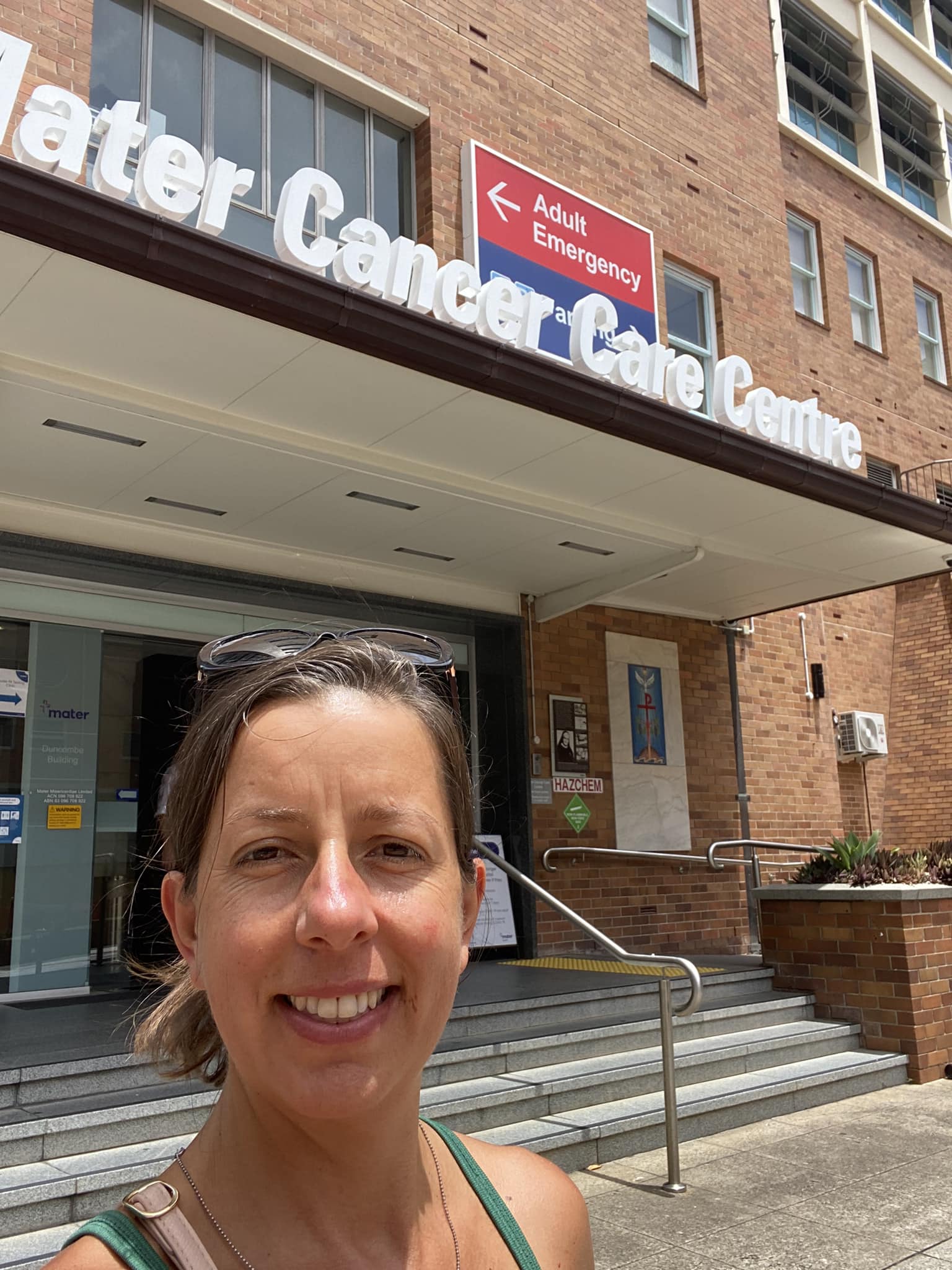
When I had this feeling deep inside there was something terribly wrong, I had moments that I thought, maybe I do have cancer. But I did not want to accept it. I just did not want to be that person. I said, “I’m not sick. I can’t have cancer.”
I think that in society, there is a massive stigma around cancer. When people are diagnosed with cancer, I feel that people see them as a failure. People see them with pity, and that was one of the hardest things to overcome, especially at the beginning. They look at you with such pity and you’re like, “Why are you doing that?” When you start telling people, it’s almost like you’re ashamed of it because you caused it yourself.
[I have] no family history, [so my doctor] said, “I’m sorry. It’s just bad luck.” So I feel that there is a lot of stigma, but it wasn’t bad luck. I do think that I contributed a lot to it. A big part of a cancer diagnosis is a wake-up call and it’s an opportunity for anybody to change their lives completely. Nobody gets to the point of having such a serious disease like that out of bad luck. I really don’t think that.
»MORE: Reacting to a Cancer Diagnosis
Describe how you felt after surgery
I was told that I had to start chemotherapy a month later. I said, “Oh my God, how is my body going to recover in one month”? They said, “You’ll be fine. Don’t worry.”
The surgeon left all the poo there. He was incredible. He took the tumor out and rejoined my bowel so he didn’t have to touch any of the poo, which was dangerous. It’s incredible what he’s done. So I had to pass all of that afterward, which wasn’t fun. And I was told, in a month’s time I would need to start chemotherapy.
It was rough. It was laparoscopy, which is much better than if they had opened me up. But it was a major surgery. I rested as much as I could.
They sent my tumor to do a biopsy and they had taken some lymph nodes. At that time I only knew it was stage 3, but I did not know if it had spread to the lymph nodes. I was in limbo thinking, “Oh my God, what if they say stage 4?” Your mind is going crazy straight after surgery.
They did an ultrasound on my liver. I did not know about it at that time. They were looking at my liver for an hour. I had a little cyst on my liver, which I’m pretty sure was the cancer spreading. But because it was so small, they said, “We can’t see anything. It’s a very small cyst.”
I was coming out of the emergency, 4 days later [I’m told] I have cancer and in a month’s time, I have to have chemo. Your life goes like, what is going on?
Describe your experience with chemotherapy
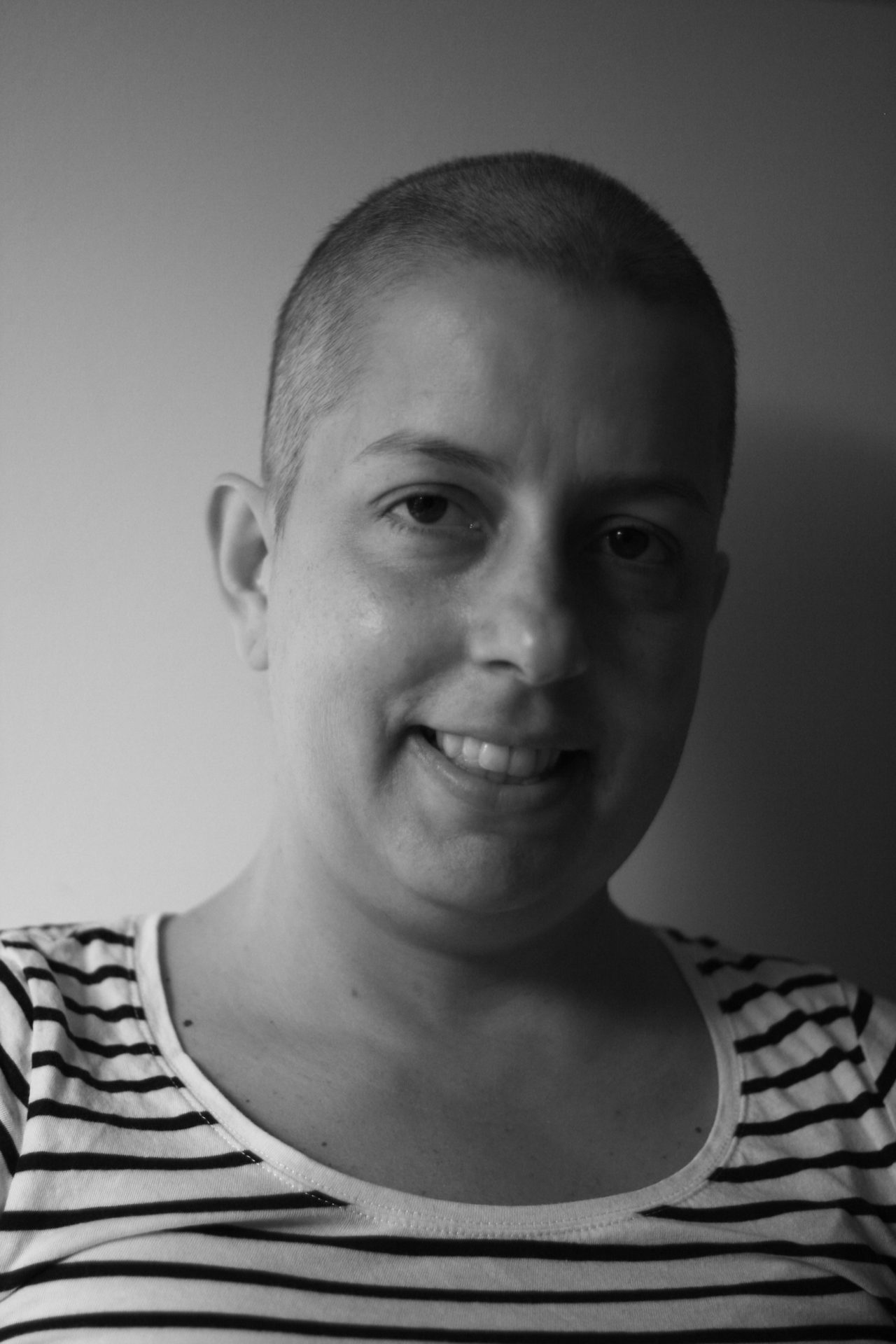
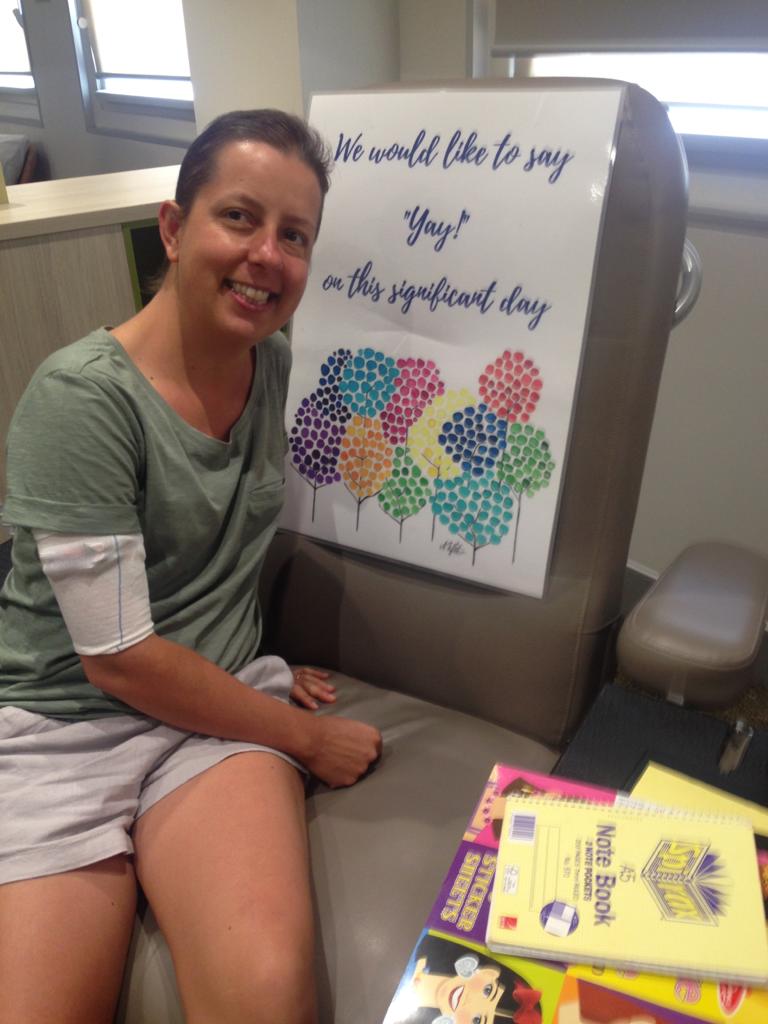
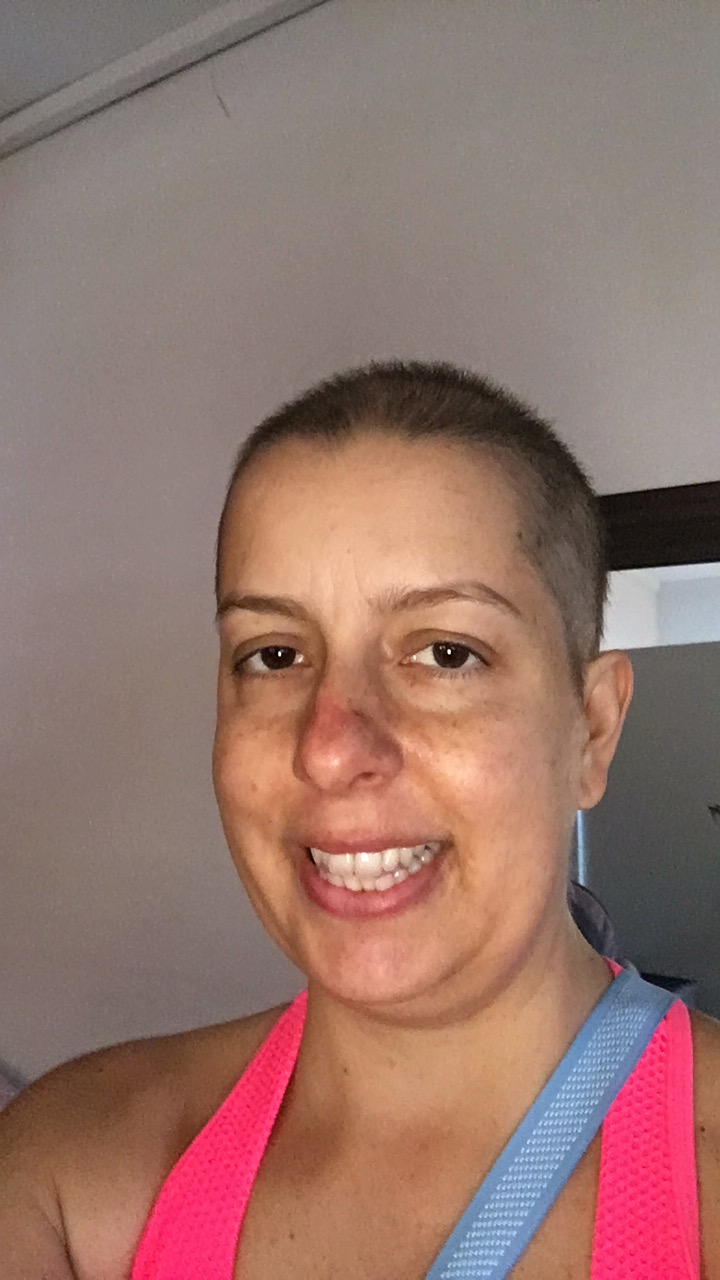
Chemotherapy was supposed to be 12 sessions of FOLFOX which is a combination of 2 drugs. I would go in on a Friday, take 1 of the drugs, and I would come home with a little bottle that would be slowly releasing the other drug until Sunday. So I would be hooked up for 48 hours to chemo, and I was supposed to have that every 2 weeks. I don’t think anybody can actually take that. It is very strong.
I was told by my oncologist, “Because you’re very young and you don’t have any family history, I’m going to give you the strongest chemo your body can take. I need to make sure I zap everything inside your body to increase your chances of survival.”
My body at the beginning was rough. It wasn’t only because of the cancer, it was because I had been burning myself out from both ends for so long. I think that’s important to highlight. The cancer is just the consequence of what has been happening for many years.
After my first session, the nurse came to disconnect me, she looked at me and said, “Oh my God, you don’t look good.” I couldn’t get out of bed for 5 days. I couldn’t watch TV. I couldn’t listen to music. I was burned out. I realized it wasn’t only because of the chemo. It was because of how I was living my life to that point.
How did you process your cancer diagnosis?
I believe in God, and I asked God, “Are you serious? I’ve got 2 kids to raise. Don’t you see that? They’re only 6 and 4. I’m only 38. Any chance that you could have given me something a little easier?” And I got an answer. People ask, “How did you get an answer?” I said I was open to getting an answer, and the answer was, you need to forgive your parents.
I had a lot of issues with my parents. I hadn’t spoken to them for 12 years and I held on to a lot of anger and resentment. I know that not everybody believes in the natural world, complementary medicine, and things that are not only physical, but the bowel is the organ that you let go of your things. When you don’t let go of your things and you keep them, that’s how it affected me.
»MORE: Processing a cancer diagnosis
What was life like before your cancer diagnosis?
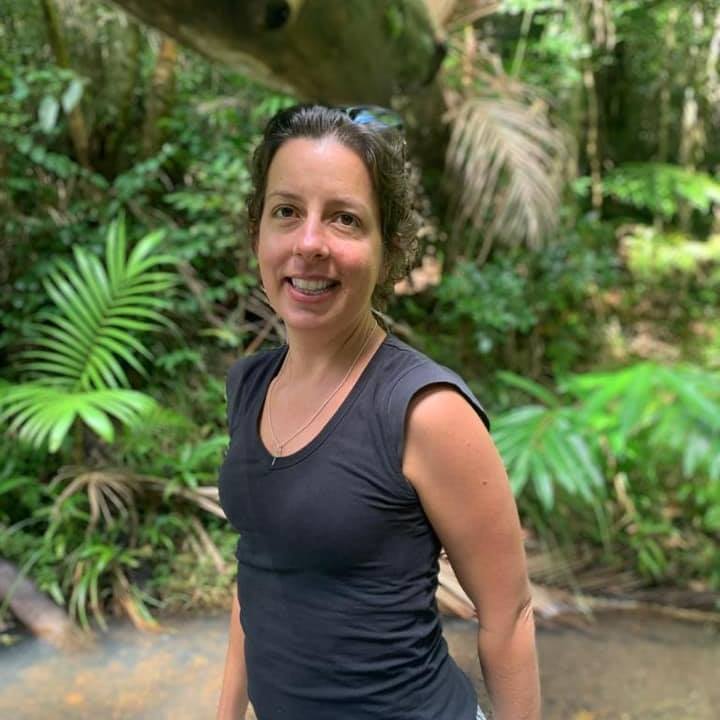
I had been angry and stressed, I had been resenting my family, and I was stubborn about it. All my jobs were very stressful because it was an addiction – to seek that stress and that vicious cycle. I didn’t look after myself. By the time I was a mom, I was all for my kids. There was nothing around self-care.
I thought I ate a good diet because I cooked from scratch at home, but I ate an enormous amount of animal products. Meat, dairy, and very little fruits, vegetables, legumes, and things that come straight from nature.
I drank alcohol. I binge-drank for 16 years. By the time I had the kids, I drank less but I still drank 8 units a week. You think that’s not too bad, but when you keep doing that over and over again, your body says, I can’t take this anymore. Enough is enough, and that’s what my body did.
How did your body react to chemo?
I was really tired and nauseous 24/7. [The doctors] said people that have had morning sickness most likely are going to be very nauseous the whole time. Because I had morning sickness with my daughter for 9 months, I thought I’m a pro at this. I’m going to nail this. I’m going to be fine. I just dealt with it. I used to take the medication that they gave me for the first 3 days while I was on chemo, which was very strong. After that, I thought there was no point because the nausea was always there.
I was exhausted, but I started to change my diet during chemo and I also started exercising and meditating. I did not wait until the end of the chemo. [My] diet changed slowly from an animal product-heavy, Western diet to a plant-based diet. I did it slowly because I needed my kids and husband to come on the journey with me so we could all be eating the same thing. On top of that, I started exercising. A lot of people feel like [they] need rest. I focused a lot on rest and I think rest is a massive part of the recovery.
Lifestyle Changes
Stopping work to focus on health
I stopped working during chemo. I thought I really needed to focus on myself. I was getting sick with coughs and colds at the beginning so I self-quarantined. I stopped seeing people. I had all my energy to myself. The kids would go to school, my husband would go to work, and I would just fully focus on my healing.
I spent a lot of time in bed, but I started going for walks for 5 minutes, 10 minutes, and 15 minutes. I started doing yoga for 5 minutes, 10 minutes, and 15 minutes. Before I knew it, I was doing half an hour, 45 minutes, and an hour. On my first days, it was really slow and I would exercise as much as I could – 5, 10, 15, 20 minutes.
»MORE: Read about the benefits of yoga and meditation for cancer patients
On my best days, I would go for it. I would be running my bike. I had my bike on a wind trainer at home. I would have my pump on and I’d be cycling as hard as I could because I would crash after the pump would disconnect so I would just go for it. I started getting stronger from one session after another. I started having less days in bed and more days doing more things.
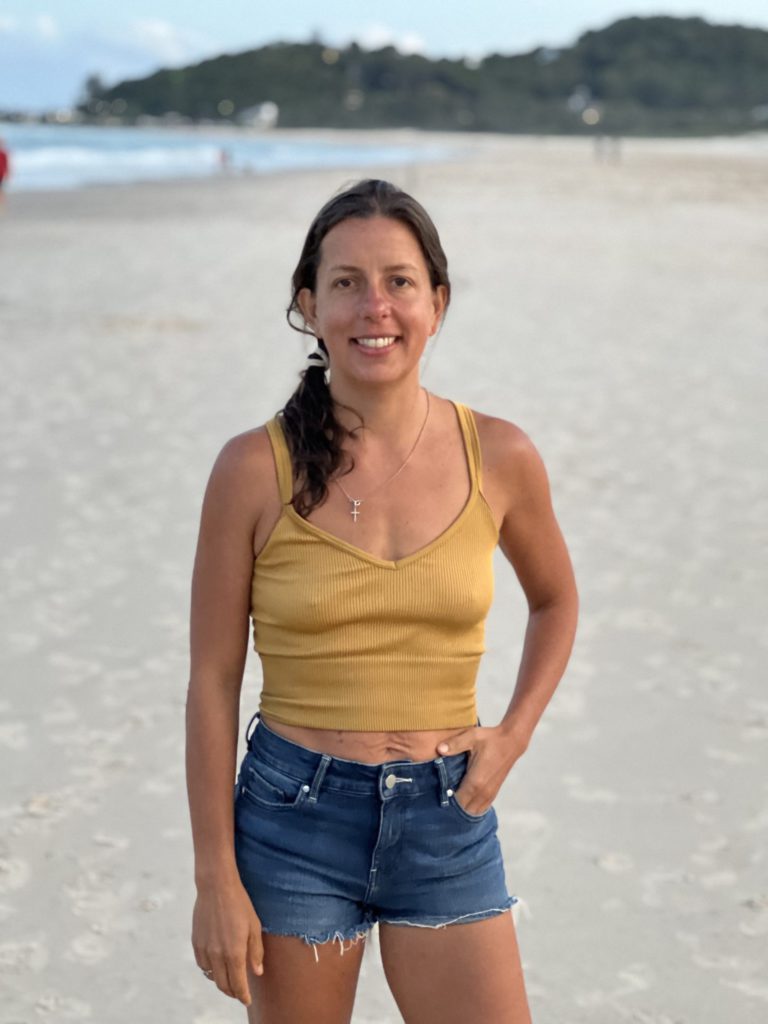
What led you to choose a plant-based diet and exercise?
The doctors did not say anything. They said, “You’re going to feel sick. Do what you can. Rest as much as you can.” I started my journey by getting books from the library about recipes that people ate during chemotherapy. As I started reading about nutrition, I said, “Oh my God. All of the food that comes from nature is like medicine. Where have I been? Which world have I been living in?”
I started devouring books on nutrition, healing, and on everything that I could to take complete control of the things that I could control. Somebody sent me a thing from a lady who had stage 4 bowel cancer and exercised, and I thought I should introduce exercise.
I started with very small steps. I went from 0 to 100 working and doing everything to not being able to get out of bed, so I had to take small steps. It was like I was forced to do that, but it was a blessing because I learned how to be patient. I learned to connect to myself again. I was so disconnected from my body and from myself. Yoga helped me so much with that and sitting and breathing.
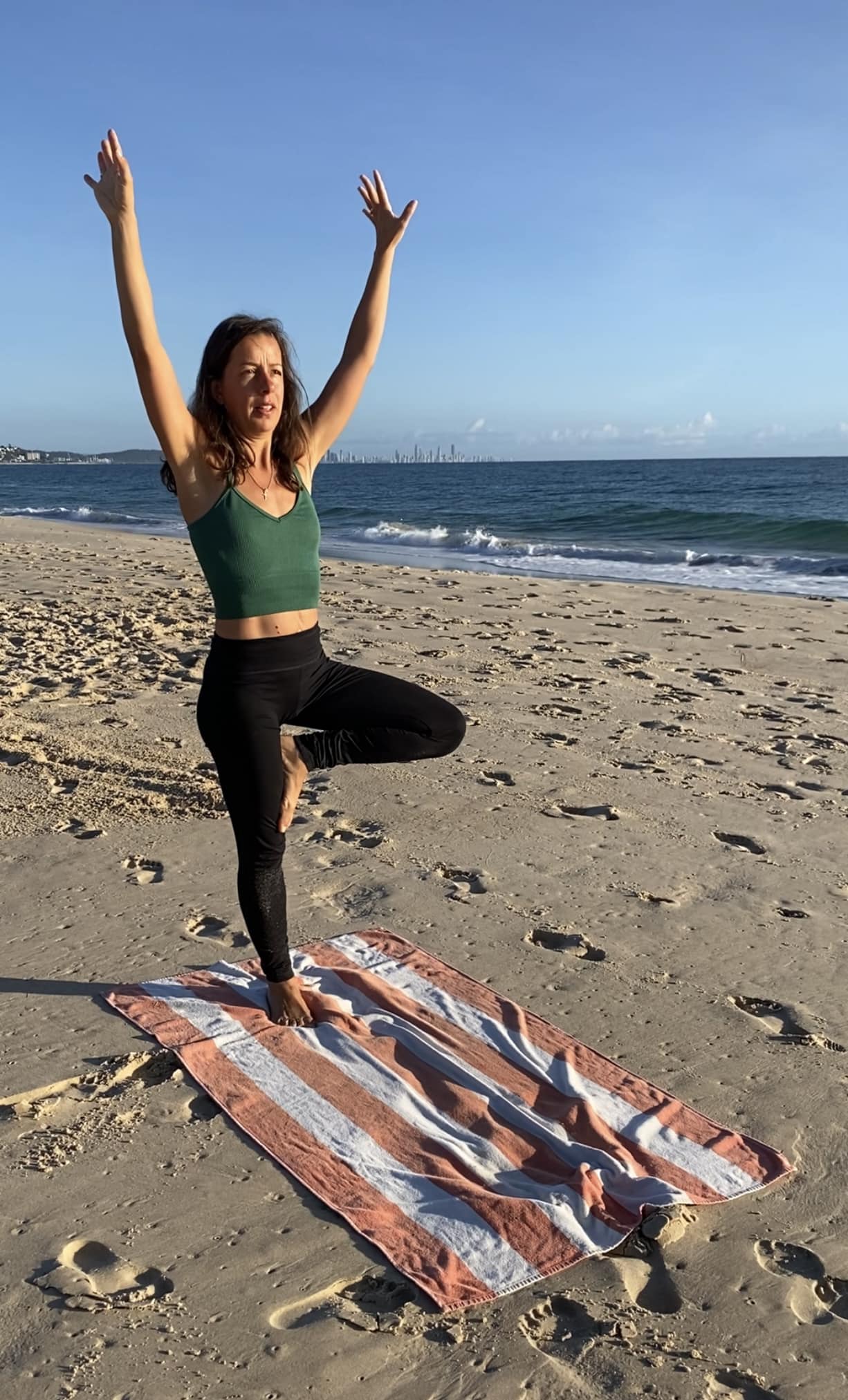
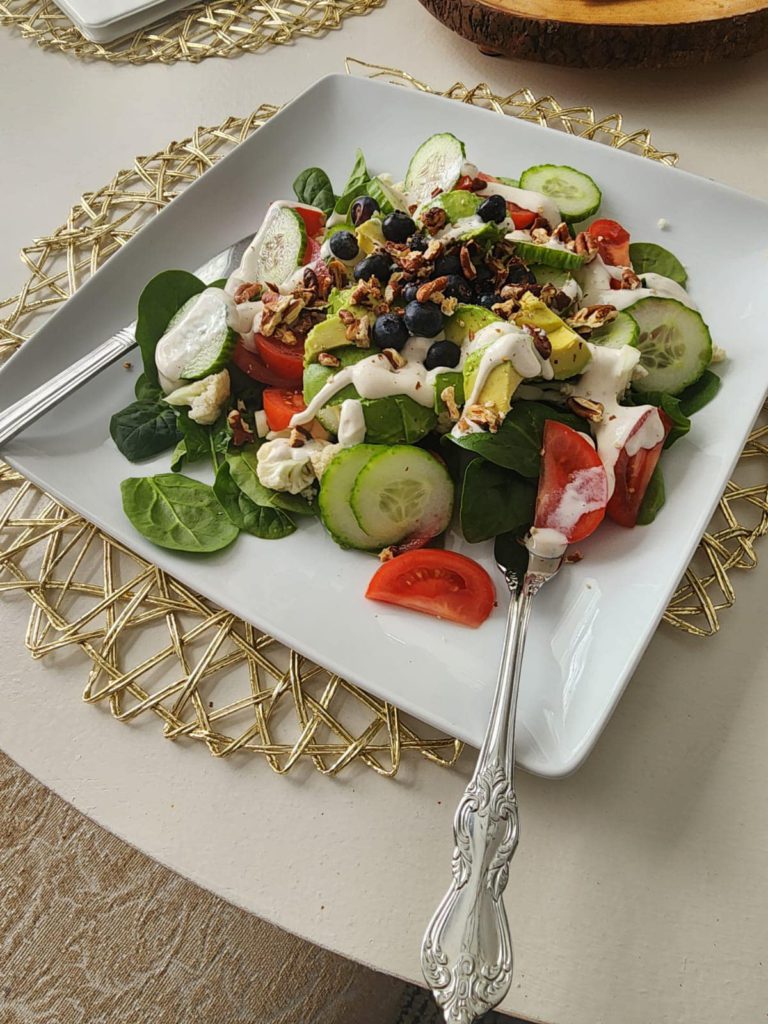
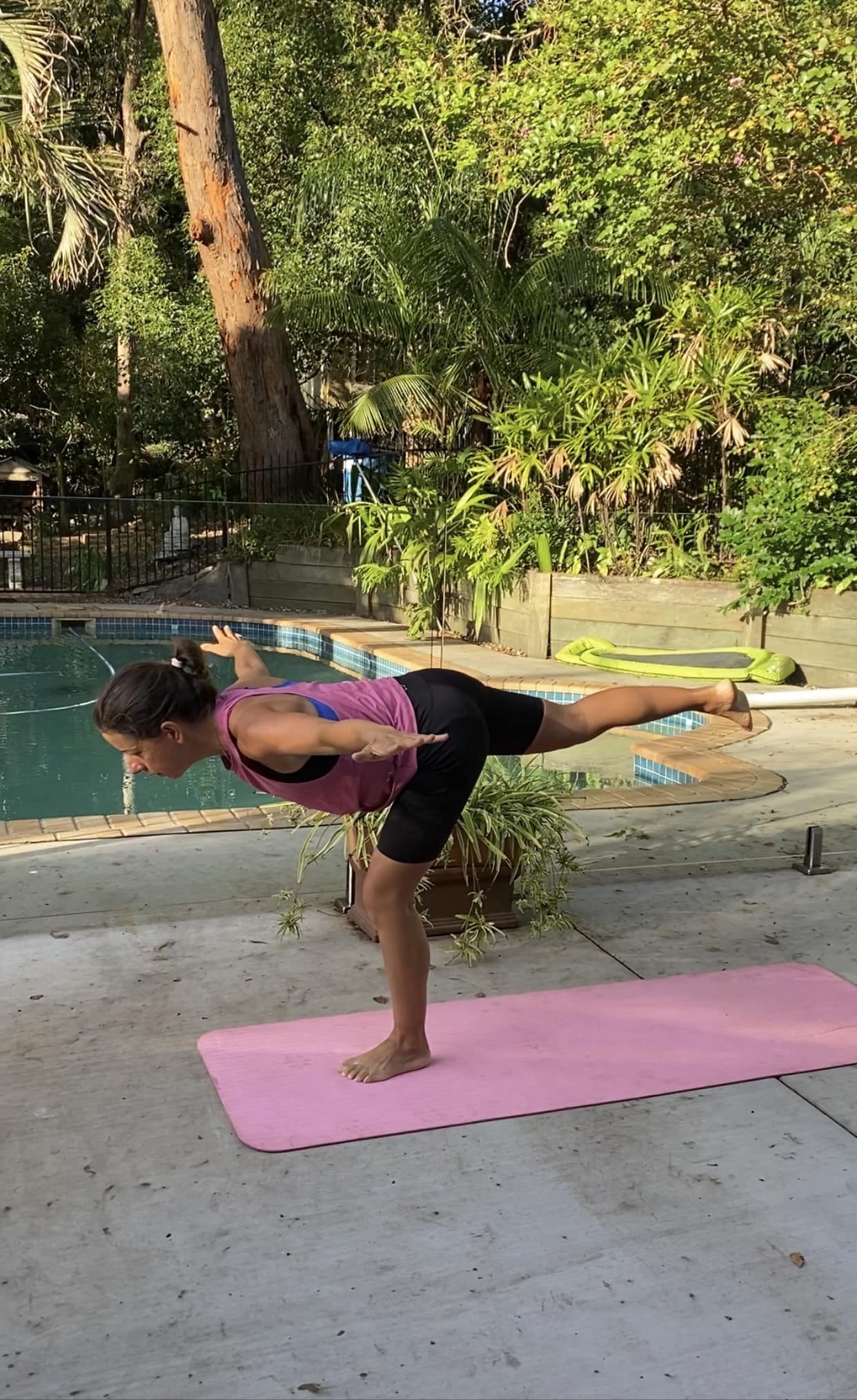
Using food as medicine
For example, the doctor would ask, “Have you got any constipation or diarrhea after the chemotherapy?” I’d say, “I have constipation.” [He’d say], “Okay, here’s another medication.” And I’d say I’m not going to take any more medication, so I started juicing. I’d say, my platelets are low. What should I eat for that? My white cells are low. What should I eat for that? And I started just researching.
I spent my whole chemotherapy, 7.5 months reading about nutrition. The driver was understanding why I got to that place. When they told me it was bad luck, I thought, no. I’m not accepting that. I need to find my own answers. I need to understand what led me to this.
When I looked at my life, I was 38 years old. I had lived 20 years in Brazil and in Brazil, I ate an enormous amount of sugar, salamis, pork meat, and red meat. Vegetables – yes. Fruit – yes, but the Western diet is very heavy on animal products. There is little space and opportunity for you to eat veggies, so it’s about changing that balance. After everything that I read, I was not only focused on conquering cancer, I was focused on creating long-term health.
What are some examples of foods you used as medicine?
Platelets, for example, you can eat papayas. For constipation, I started juicing 2 days before and eating kiwis, before the chemo started and I never got constipated again. Carrot juice, orange juice, and kiwis, I would binge on it. I said that’s it. I am not going to get constipated.
How beneficial were diet and exercise for you?
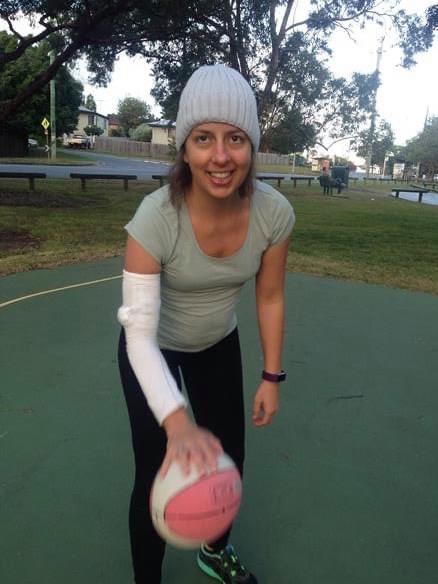
My diet is a completely plant-based diet. I had to do it slowly because of the kids, so we all eat a plant-based diet now. I exercise every single day without fail. I meditate, I sleep 8 hours a day, I prioritize my health above all, and my health only got better and better.
I cannot believe what my body has done for me. I was in awe when I finished the 12 sessions. One of the oncologist’s nurses said to me, “Well done for finishing the 12 sessions.” I said, “Not everybody does?” And he said, “No. I’ve seen 4 people in 8 years of oncology finishing the 12 sessions.” I was like, “Oh, my God.”
Two weeks later, I was running. I was so fit. For people that are going through chemo, [I suggest] focusing on diet and exercising. If I had let my body go – 7.5 months is a long time for you to let your body go – my body would have been a wreck.
Reflections
Describe reconnecting with yourself
I went from doing nothing for me to doing everything for me, and I was having the best time of my life. Yes, it was rough. I’m not going to say it was easy, but I had been a mom for 6 years. I had 2 children, 6 and 4 years old. I hadn’t looked after myself for so many years. It was so refreshing to spend that opportunity to get to know who I was.
I remember one of the first yoga sessions that I was doing on YouTube, and the teacher said, “Ask your body something.” And I said, “Who is this?” I was so disconnected, I didn’t know that I had a body. We live thinking that the body has to work for us and we resent it when our bodies are not so energetic, but it’s because you’re not giving anything to your body.
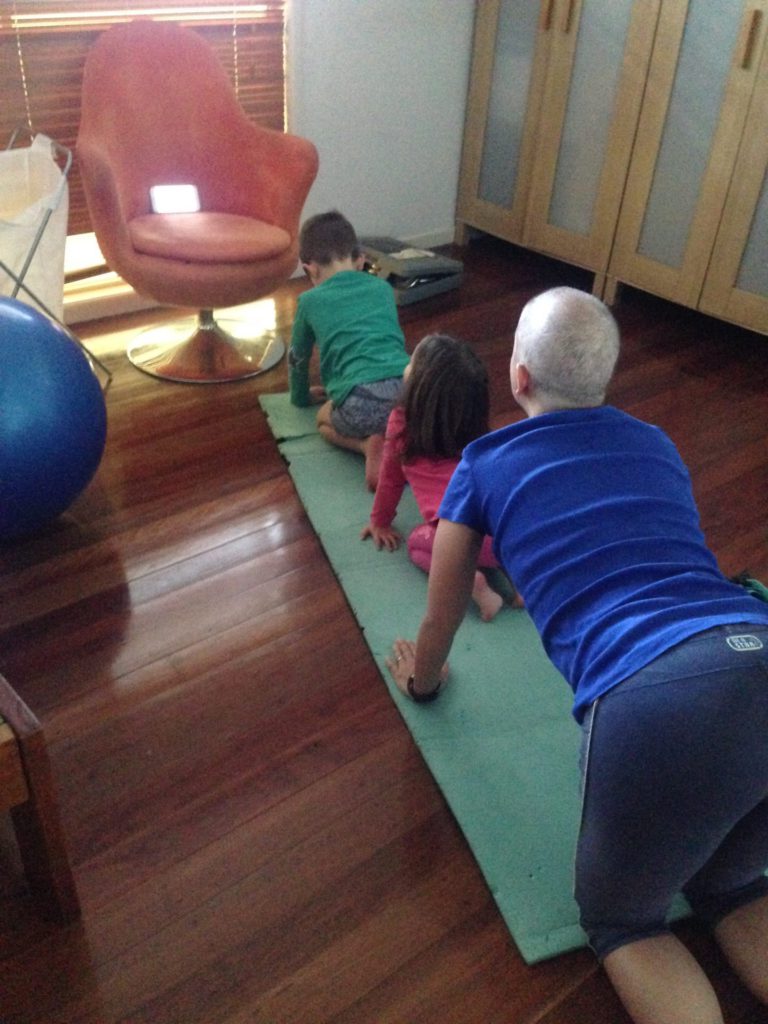
I hadn’t looked after myself for so many years. It was so refreshing to spend that opportunity to get to know who I was.
Focusing on the positive
It’s so important for you to protect your energy during cancer treatment because the physical battle is hard, but the mental battle is much harder.
I was focusing on all the positives that I was going through. I’m in a first-world country. I’m receiving the best treatment. The nurses were incredible. I kept focusing on everything that was good in my life. I’ve got my kids, I’ve got my husband. [I was] changing everything into gratitude.
I didn’t spend any time watching the news and watching other people’s cancer stories that were not positive. I would spend all my time watching stories like, this person has stage 4 cancer and they survived and they’re thriving. I’m watching that and spending all of my time in that space. It’s so important for you to protect your energy during cancer treatment because the physical battle is hard, but the mental battle is much harder.
Did you have follow-up procedures after chemo?
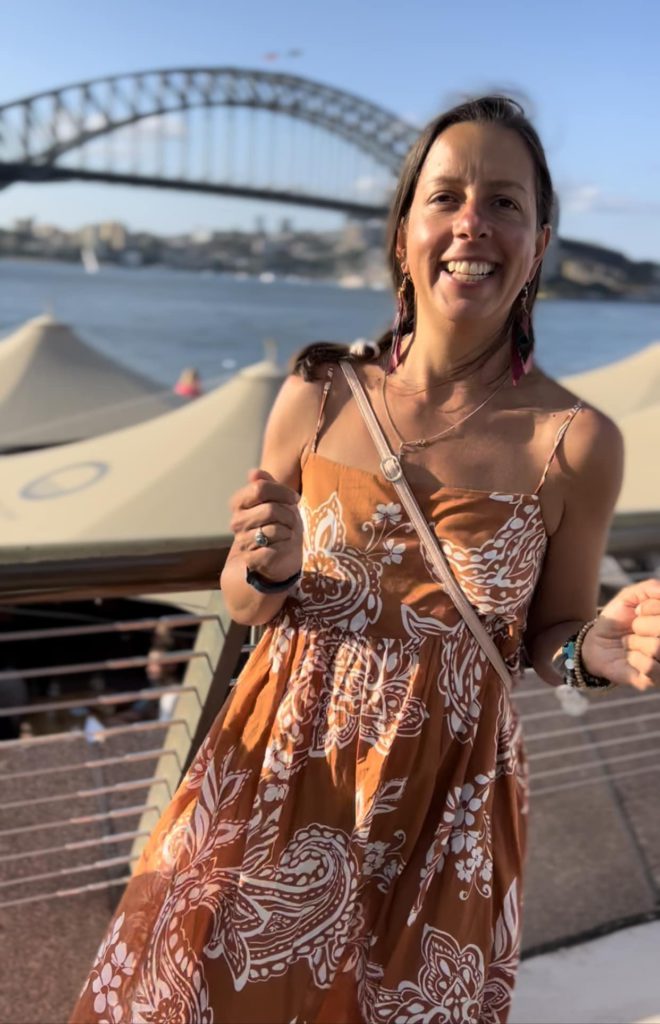
I had scans every 6 months. I had my first colonoscopy after treatment and they found 3 polyps. I said, “I’ve just gone through 12 sessions of chemo. Didn’t the chemo kill the polyps?” No, the chemo only kills fast-growing cells. Because I had polyps, I had to have colonoscopies every year. I had my last one in 2021 and they found no polyps for the first time. At the area of the surgery as well, which was really good. For the first time in 5 years, which was incredible. I did not expect that, and it was the surgeon that did my emergency surgery that did it. When he told me that, I was stoked. I was hoping for 2 years, but 5 years was incredible.
That cyst that I had in the liver is gone. They never really worried about it, but I did and I wanted that cyst to be gone. After my treatment, because I had so many issues with heavy periods, I did decide to have a partial hysterectomy. During chemotherapy, I was the only patient who had bleeding. They told me that I was going to go into menopause and I didn’t. I had bleeding that almost killed me. I ended up in the hospital and they couldn’t stop the bleeding. I had to push for that. I said, “What are the chances that I’m not going back to having heavy periods and anemia?”
I believe that taking iron tablets is really harmful to the gut because I did that for a whole year. Plus, I was told to eat steak 3 times a week. That really accelerated my cancer. I am absolutely sure about that.
So I did not want to go back to taking iron tablets. I had a partial hysterectomy, they’ve taken my womb and cervix and they left my ovary. I had that 3 months after chemo. Two weeks later, I was totally fine. Actually, for 6 weeks I couldn’t do any exercise but I was so fit that I bounced back completely from that surgery which was a pretty major surgery.
How has cancer changed your life?
Cancer is an opportunity for you to rewrite your story. Let go of the things that don’t serve you. It’s a pretty big wake-up call. You can’t keep doing what you’ve been doing because clearly, it hasn’t worked. It’s like, I’ve got to rewrite the whole thing. It’s almost like you need to learn how to walk again, how to talk again, and it is in every area of your life. It’s not only about looking after your body, but it’s looking after your thoughts, your mind. Like I said about the stress, the resentment, the anger – is this serving me?
It’s important to highlight, you might not be able to do that for you at the beginning. I couldn’t do it for me because I didn’t have a connection with myself. I didn’t love myself. I didn’t know who I was, but I did it for my kids. I wanted them to know, if I died, that I tried everything I could every single day to survive. I wanted to leave that message for them.
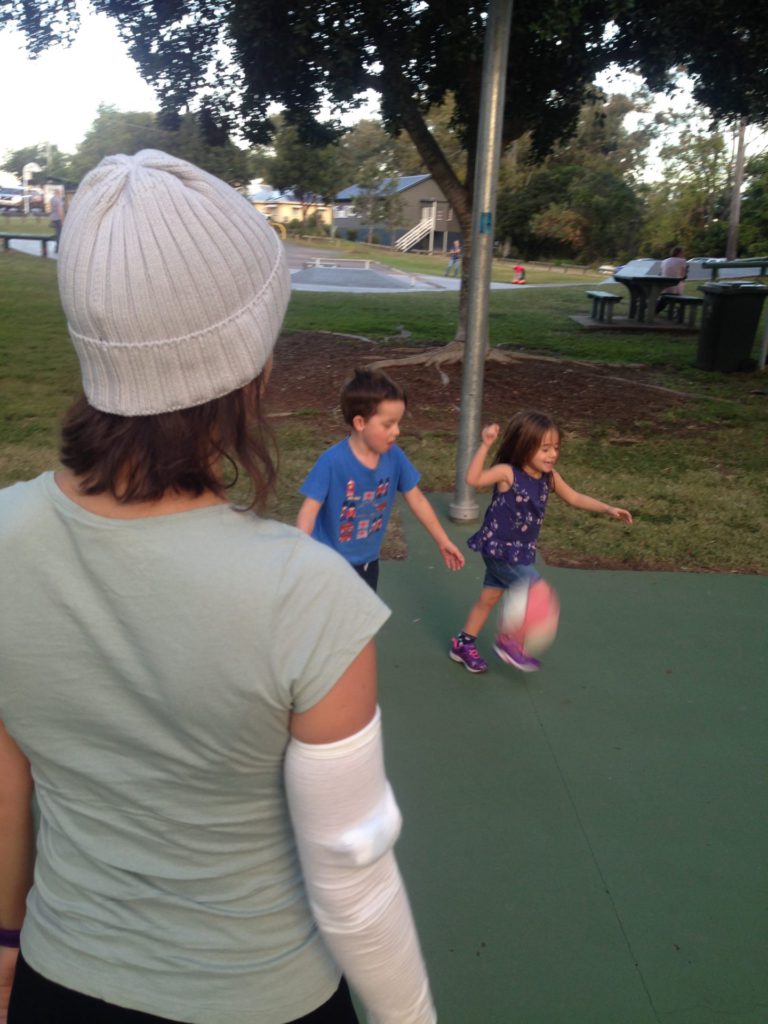
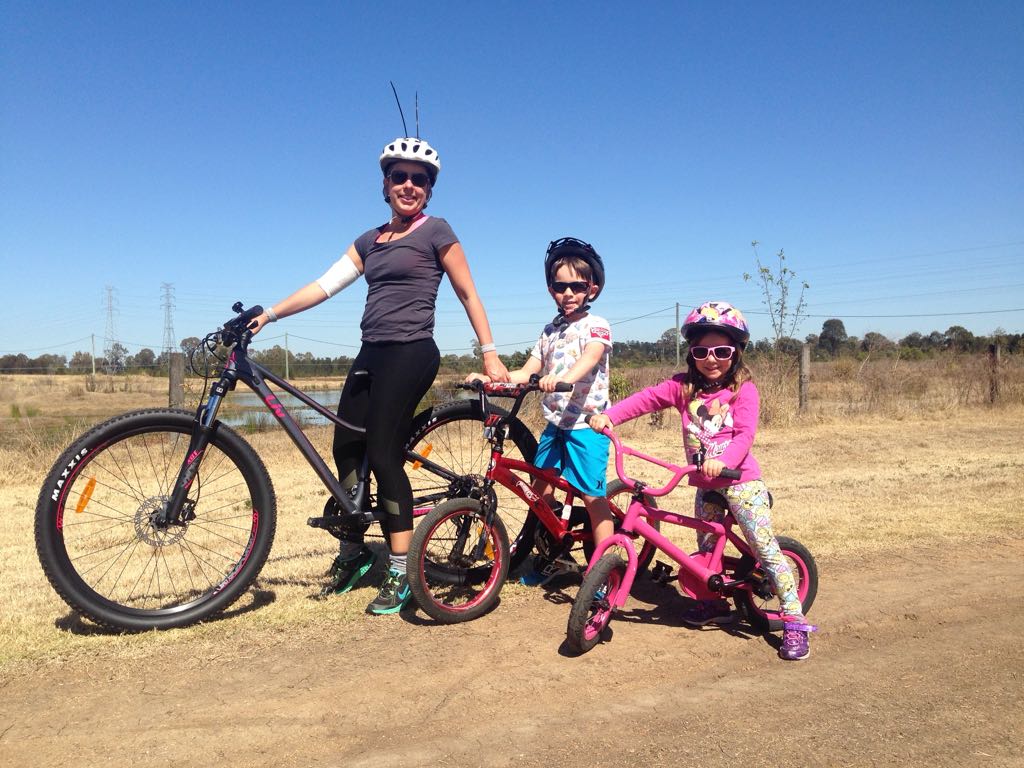
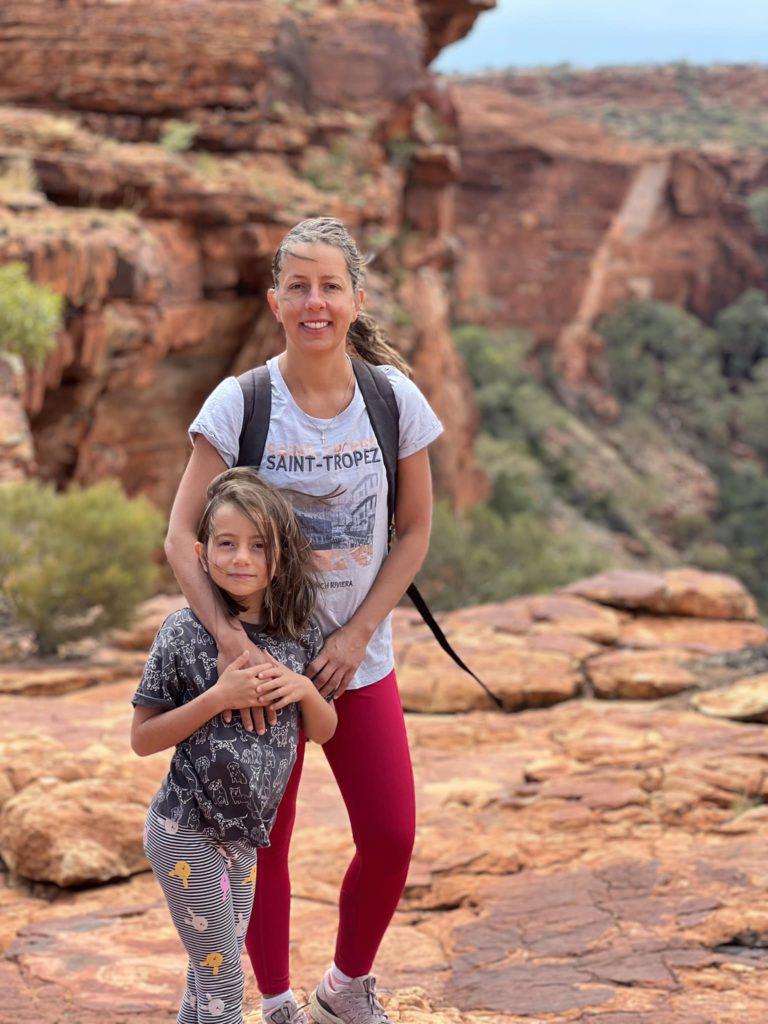
The importance of sharing your cancer story
I think this is a beautiful initiative. I wish I had found your channel when I was diagnosed with cancer because it’s a time when you feel so scared. Listening to other people’s stories is so important. Especially when, like myself, I didn’t have anybody close to me who had gone through it. I was so fearful and in such a dark place because I thought that cancer equals death, and it doesn’t have to be like that. So this initiative is important. Thank you so much for having me.
More Colon Cancer Stories
Kristie C., Colon Cancer, Stage 4 (Metastatic)
Symptoms: None per se that she noticed; she experienced constipation and passed narrow stool, but had been experiencing constipation most of her life, and thought that these digestive issues could also have resulted from perimenopause
Treatments: Chemotherapy (including adjuvant chemotherapy), radiation therapy, ablation therapy (liver ablation), surgeries (colectomy, temporary ileostomy, ileostomy reversal, scheduled liver resection)
Briana H., Colorectal Cancer, Stage 3
Symptoms: Periods of constipation initially lasting one week and then extending to two weeks, nausea, pain in lower left abdomen, lack of appetite, vomiting and inability to keep fluids down
Treatments: Surgeries (colon resection, tumor removal, colostomy placement, colostomy reversal), chemotherapy
Kailee O., Colorectal Cancer, Stage 4 (Metastatic)
Symptoms: Sensitive stomach sometimes leading to vomiting after eating, bleeding during bowel movements, persistent fatigue, back pain, abdominal pain, anemia, significant symptom flare-up during second pregnancy
Treatments: Surgery (colectomy), chemotherapy, targeted therapy
Starr S., Colon Cancer, Stage 4 (Metastatic)
Symptom: Abdominal pain
Treatments: Chemotherapy, surgeries (colectomy, hepatectomy, lymphadenectomy), targeted therapy
Jackson L., BRAF Mutation Colon Cancer, Stage 4
Symptoms: Severe stomach pain, fatigue, lack of motivation, anemia, blood in stool, thinning stool
Treatments: Surgeries (emergency bowel obstruction surgery with temporary colostomy, possibility of HIPEC in 2026), chemotherapy, immunotherapy
Heather C., Colon Cancer, Stage 4 (Metastatic)
Symptoms: Severe bloating, indigestion, vomiting, rectal bleeding
Treatments: Chemotherapy, surgery (liver transplant, upcoming)
